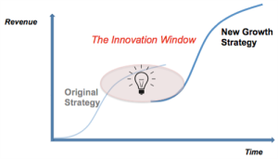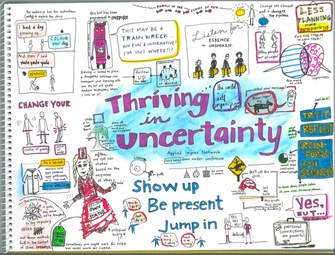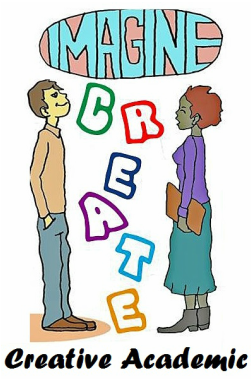
Where does creativity fit into this schema? What is it – and what is it not?
Consider the lingo
Today, metrics, expedience, and control mechanisms are used within higher education to harness creativity for market interests. This is aided by a particular language in current use.
I have dubbed it Zombilingo, because it’s a lingo that eats meaning in the way zombies eat brains. Unlike a related patois – let’s call it “Corpspeak” – which imports the language and concepts of business into higher education (and in fact all other spheres), Zombilingo first exports the vocabulary of creative thinkers into the business realm. There, it undergoes a sort of psychic surgery. It is then sold back to the academy, hollow as an empty brain-pan.
I’m currently compiling a ZED (Zombilingo/English Dictionary) which includes many terms in their before-and-after-surgery forms.
For instance, “dream” (before: irrational, demanding, allowing utopian reach; after: visions of material success). “Passion” is in the ZED listing too, along with “imagination” and “excellence” – and “creativity”, which is now a cant word in universities.
The commodification of creativity
Following government directives, universities are enjoined to develop “creativity” among students, to prepare them to compete in the global “marketplace”. This, the government hopes, will lead to “increased productivity and efficiency across the economy”.
In the US, Obama described “creativity” as America’s “single greatest asset”, and promised to “aggressively protect” the nation’s intellectual property.
Australia’s national cultural policy, Creative Australia, also proclaims that “a creative nation is a productive nation”, echoing American urban studies theorist Richard Florida’s declaration that not only is “creativity … now the driving force of economic progress and decisive source of competitive advantage”, but that “creativity is the new economy”. In the same article, Florida defines the creator as “one who rebels against nature’s dictates”. Thus we have the “creative” Hollywood-style cowboy whipping the steers of industry across the dusty plain (now cleared of natives and bison). His wilful individualist’s determination will never say die, though “nature” might protest and environmentalists point out that untrammelled exploitation of the earth’s resources may spell disaster for the planet.
In Florida’s narrative, notions of “economic progress” and “competitive advantage” are the rewards bestowed by “creativity”. These are simplistically represented as the virtues of a hero whose aggressive performativity will enable greater success in a narrowly Darwinian sense. That is, the ability to continue to produce and consume product at an ever-increasing rate in the competitive global market.

And really, universities ought to be the sites to do that thinking in. They’re full of thinkers, aren’t they? Maybe, but it’s harder to be creative when you’re working with a dead script employing such usages as “client”, “productivity unit” and “multi-output organisation” for “student”, “academic”, and “university” – or when your work is subjected to value judgements by growth indicators, such as those outlined in Creative Australia’s tracking and targeting policy. All of these begin with the word “growth” – of participation, of economic impact, and of value of the cultural sector as measured by a statistics working groups.

Creativity is a liminal activity. It happens in an ambivalent space between certainties. You have to find a balance between intellect and imagination. You need to be able to speculate, muse, play around with thoughts. The right words are needed for this, and also time. As in the slogan of the Slow Science Manifesto: “bear with us while we think”.
Uncertainty itself is part of creative process, “a source of possibility and potential action”, to borrow a phrase from the Slow Science Manifesto. Favouring accident, chance, and unsystematic stimulation supports creativity too. Divergent thinking, and therefore creativity, is stimulated by engaging with imperfect or ambiguous information – which takes time to explore.
Or, in Italian writer Carlo Petrini’s words, the tempo giusto: the right speed for the task. In order to produce something fresh, a new insight or original analysis, time cannot be suborned to the acquisition of immediate, quantifiable objectives.
The results of creativity are unpredictable: it’s a risky business, and it needs to be so.
Attempts to control it through instrumental proceduralism, managerial scrutiny, and the imposition of unreasonable time-constraints is antithetic to creative practice. Where you might have had imaginative dynamism, instead you get an anodyne performance. It’s quite hard to be creative when being supervised and measured.
Control also produces fear of the consequences of failure to comply. This undermines scholarship, inhibiting possibilities for unconventional analyses, for strangeness or beauty, for the possibility of change or seeing broader vistas than those allowed by the current economic monocultural view.
The opposite of creative vision is totalitarian narrowness: streamlined, directed, quantified and ultimately dead-ended.
Once upon a time, universities were in the thrall of medieval scholasticism. Today the over-privileged controllers are corporate rather than clerical. But ideally, universities could be superlative sites for what cultural studies scholar Raymond Williams described as “the articulation and formation of latent, momentary, and newly possible consciousness”.
This means demanding time and space for the creative process to flourish.
Please share your perspectives on concepts of creativity that higher education might find useful to develop particularly in the context of enabling students' creativity to flourish
Image credits
Measuring Crearivity http://cognitiveseo.com/blog/4917/is-unoptimized-the-new-optimized-for-seo/
Innovation Growth Curve http://christopherhildreth.com/
Thriving in Uncertainty http://vivmcwaters.com.au/2012/07/


 RSS Feed
RSS Feed
